Papers by Bureha Volodymyr

Heritage of the professor of the Kyiv Theological Academy Vasyliy Ekzempliarskiy as a prologue to... more Heritage of the professor of the Kyiv Theological Academy Vasyliy Ekzempliarskiy as a prologue to the history of the domestic "public theology"
Abstract: The article is dedicated to the intellectual history of the early twentieth century of the Kyiv Theological Academy. In the years of the First Russian Revolution (1905-1907) in the Kyiv Theological Academy was formed a liberal party of professors. They were advocating the idea of a reform of theological education system. In particular, the reformers called for the democratization of the inner life of the theological academies, for the academies autonomy in relation to the power of the bishops, and for the election of higher administrative positions in the academies. In addition, liberal professors tried to find new ways of Orthodox theology developing. They advocated the approximation of theology to the needs of the present, for overcoming the closeness and scholasticity of academic theology. One of the brightest representatives of this ideological course was the professor of the Kyiv Theological Academy Vasiliy Ekzemplyarskiy (1875-1933). In teaching moral theology, he tried to discuss with the students the actual social problems. In his publications in the 1905-1912, one can see the seeds of what is now called "public theology". In particular, his program articles were dedicated to the problem of the morality of international politics and the problem of the death penalty. A wide resonance was caused by his article devoted to the comparison of the social doctrine of St. John Chrysostom and Leo Tolstoy. The views expressed in this article caused the discontent of the church leadership. In particular, Ekzemplyarskiy here severely condemned the "official" theology, which, in his opinion, tried to justify the non-Christian actions of the state through biblical arguments. As a result, in 1912, Ekzemplyarskii was dismissed from the Academy and was able to return to teaching only after the February Revolution, 1917. In connection with further revolutionary upheavals, the ideas of professor Ekzemplyarskiy, unfortunately, did not develop. Nevertheless, the legacy of Vasiliy Ekzemplyarskiy was an important prologue to the formation of domestic "public theology".

Homiletics in the Kyivan Theological Tradition since the 18th till the beginning of the 20th Cent... more Homiletics in the Kyivan Theological Tradition since the 18th till the beginning of the 20th Century: General Theory and Particular Implications
Article is devoted to the review of history of formation homiletics as sciences in the Kiev theological tradition. On the basis of the analysis of the first domestic work under the theory of the sermon, made by Ioanniky Galjatovsky, process of influence of the Catholic baroque sermon on origin homiletics in Kiev in XVII century is shown. There is also a homiletic views of archbishop Feofan Prokopovich analysis, aspiring to reform the domestic church sermon, having relieved it from extreme measures of the baroque literature. The contribution to formation homiletics as sciences in the Kiev theological academy in XIX - beginning ХХ centuries of professors Jacob Amfiteatrov, archpriest Nazarij Favorov and Vasily Pevnitsky is considered. Process of transformation of a view on the nature and the sermon form in the Kiev theological tradition is shown. Influence of the academic theological science on practice of the church sermon during the specified period is disclosed.

HOMILETICS AT THE KIEV THEOLOGICAL ACADEMY: WESTERN INFLUENCES AND THE SEARCH FOR ITS OWN WAY
Ar... more HOMILETICS AT THE KIEV THEOLOGICAL ACADEMY: WESTERN INFLUENCES AND THE SEARCH FOR ITS OWN WAY
Article is devoted to the review of history of formation homiletics as sciences in the Kiev theological tradition. On the basis of the analysis of the first domestic work under the theory of the sermon, made by Ioanniky Galjatovsky, process of influence of the Catholic baroque sermon on origin homiletics in Kiev in XVII century is shown. There is also a homiletic views of archbishop Feofan Prokopovich analysis, aspiring to reform the domestic church sermon, having relieved it from extreme measures of the baroque literature. The contribution to formation homiletics as sciences in the Kiev theological academy in XIX century of professors Jacob Amfiteatrov and archpriest Nazarij Favorov. Special attention is paid to the analysis of the Professor Vasilij Pevnitskij views who criticized the traditional approaches in Orthodox homiletics. In particular, Professor Pevnitskij rejected the view on homiletics as a purely practical discipline, designed to provide students with knowledge about the preparation and preaching of the sermon. He believed that homiletics should not teach the method of preparing a sermon, but morally educate preachers. Pevnitskij offered to rename the homiletics to the "spiritual literature" and introduce a historical method in its teaching. The course of "spiritual literature" had to show students how the living word influenced on people and changed the world. Consequently, homiletics should turn into an analytical history of spiritual literature. The poetry shares the opinion of a number of Protestant theologists that the success of the sermon does not depend on the perfection of its external form, but on how deeply the truth captures the preacher. The decisive feature of the preaching word, he believed not to abstract rules of drafting and preaching, and a special inner inspiration ("animation") of the preacher. Similar opinion were observed, in particular, by Protestant thinkers such as Philip Jacob Schpener, Franz Theremin and Friedrich Schleiermacher. Prof. Pevnitskij tried to creatively rethink their ideas. An alternative to scholasticism he saw in the holy tradition. It was on the foundation of patrician homiletic heritage that Pevnitskij tried to build a new course in homiletics.

Unknown research of Kiev theological academy professor Peter Kudryavtsev about burial places in t... more Unknown research of Kiev theological academy professor Peter Kudryavtsev about burial places in the Kyiv Bratsky monastery cathedral
In this publications enters into to the scientific circulation the manuscript of Kiev theological academy professor Peter Kudryavtsev, which is dedicated to the burials revealed in underground of Epiphany cathedral of Kyiv Bratsky monastery in 1878-79. During replacement of the cathedral floor the vicar of a monastery has gone down to an underground where he has found two unknown before persons burial. In one coffin has been found miter. The other coffin, which has appeared to be made of stone, wasn’t opened and investigated. According to P.Kudryavtsev's assumptions in the first coffin was buried a well-known church figure of the XVІІ century -metropolitan of Gaza Paisios Ligarides. The stone coffin could belong to hetman Peter Sagajdachny. Both burials have been carried out in Bratsky monastery, before Epiphany Cathedral was even built. Possibly, during cathedral building both tombs get into a cathedral area (in its underground). These burials were never investigated and have been lost during cathedral destruction in 1935 The information on the specified burials P.Kudryavtsev has received from the expert on the Kiev olden time not named in 1920th. Possibly, presented text of article represents the message made by Kudryavtsev on one of the sessions of the Commission of Kiev and Right-bank Ukraine which operated at Historical section of Ukrainian academy of sciences in 1924-1931. The manuscript has remained in Archive of the Moscow theological academy.

Наукові записки НАУКМА. Філософія та релігієзнавство, 2019
ACCUSATORY THEOLOGY IN THE KYIV THEOLOGICAL ACADEMY: TASKS AND CONTENT OF LECTURE COURSES (1823–1... more ACCUSATORY THEOLOGY IN THE KYIV THEOLOGICAL ACADEMY: TASKS AND CONTENT OF LECTURE COURSES (1823–1869)
The article is dedicated to the history of implementation and evolution of Accusatory (Polemical) theology in the Kyiv Theological Academy. The author shows the place where the controversy with other religions and other Christian denominations took place in the curriculum of the Kyiv Theological Academy after the introduction of the Statute of the religious schools of 1808–1814 in Kyiv. The article deals with the content of the lecture courses of Archbishop Smaragd (Kryzhanovsky), Archimandrite Antonin (Kapustin), Bishop Sylvester (Malevansky), Philip Ternovsky and Bishop Augustine (Gulianitsky). The author shows that the revealing theology was not an independent academic discipline at first, but was part of the general course of theology. For the first time, lectures on accusatory theology were given in Kyiv in 1823. On the recommendation of the Commission of theological schools, teachers of this discipline were to use the book of the German Lutheran theologian Johann Ernst Schubert "Institutionum Theologiae polemicae" during the preparation of lectures. Comparison of this book with the lectures of the hieromonk Smaragd (Kryzhanovsky) shows that the work of the German theologian was used by the Kyiv teacher quite selectively. Next, the article shows how in the next decades the content of the course of accusatory theology varied, depending on the general situation in theological education in the Russian Empire. In particular, the changes that took place in the curriculum of the Kyiv Theological Academy in the 1840's were characterized on the initiative of the Chief Procurator of the Holy Synod, Mykola Protasov. The author drew attention to the personal preferences of professors who found a reflection in their curriculum accusatory theology. In particular, Bishop Sylvester (Malevansky) substantially expanded in its course the controversy with the latest philosophical currents that opposed Christianity. Instead, Philip Ternovsky and Bishop Augustine (Gulianitsky) actively used the historical method, resulting in their courses representing the history of the controversy of the Orthodox Church with its various opponents. In the 1860's, when a large-scale reform of theological education was being prepared in the Russian Empire, the idea of a radical revision of the accusatory theology teaching concept was heard at the Kyiv Theological Academy. At the same time, some professors even advocated the abolition of the accusatory theology as an independent discipline and for joining it to the course of church history.
Special attention is paid to the fact that the courses of accusatory theology in the Kyiv Theological Academy in the nineteenth century were based on typical contemporary ecclesiology and soteriology for that time. The purpose of the course was not seen in equal dialogue with opponents, but in revealing their mistakes and attempts to convert them to the Orthodox Church.
УДК 373.6:2](477-25): 929»1819/1924» ББК 74.58(4Укр-2К)+86р Б63
Опубликовано в: Государство и церковь в ХХ в.: эволюция взаимоотношений, политический и социокуль... more Опубликовано в: Государство и церковь в ХХ в.: эволюция взаимоотношений, политический и социокультурный аспекты. Опыт России и Европы / Отв. ред. А. И. Филимонова. М.: Книжный дом «ЛИБРОКОМ», 2011. С. 231-265.
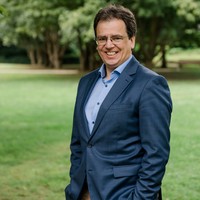

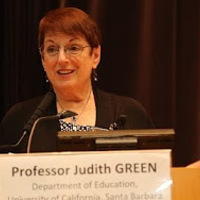

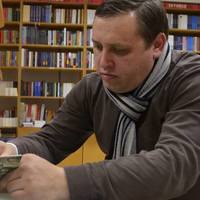

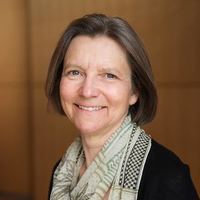

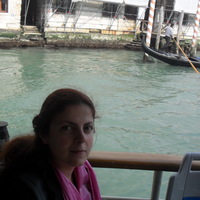

Uploads
Papers by Bureha Volodymyr
Abstract: The article is dedicated to the intellectual history of the early twentieth century of the Kyiv Theological Academy. In the years of the First Russian Revolution (1905-1907) in the Kyiv Theological Academy was formed a liberal party of professors. They were advocating the idea of a reform of theological education system. In particular, the reformers called for the democratization of the inner life of the theological academies, for the academies autonomy in relation to the power of the bishops, and for the election of higher administrative positions in the academies. In addition, liberal professors tried to find new ways of Orthodox theology developing. They advocated the approximation of theology to the needs of the present, for overcoming the closeness and scholasticity of academic theology. One of the brightest representatives of this ideological course was the professor of the Kyiv Theological Academy Vasiliy Ekzemplyarskiy (1875-1933). In teaching moral theology, he tried to discuss with the students the actual social problems. In his publications in the 1905-1912, one can see the seeds of what is now called "public theology". In particular, his program articles were dedicated to the problem of the morality of international politics and the problem of the death penalty. A wide resonance was caused by his article devoted to the comparison of the social doctrine of St. John Chrysostom and Leo Tolstoy. The views expressed in this article caused the discontent of the church leadership. In particular, Ekzemplyarskiy here severely condemned the "official" theology, which, in his opinion, tried to justify the non-Christian actions of the state through biblical arguments. As a result, in 1912, Ekzemplyarskii was dismissed from the Academy and was able to return to teaching only after the February Revolution, 1917. In connection with further revolutionary upheavals, the ideas of professor Ekzemplyarskiy, unfortunately, did not develop. Nevertheless, the legacy of Vasiliy Ekzemplyarskiy was an important prologue to the formation of domestic "public theology".
Article is devoted to the review of history of formation homiletics as sciences in the Kiev theological tradition. On the basis of the analysis of the first domestic work under the theory of the sermon, made by Ioanniky Galjatovsky, process of influence of the Catholic baroque sermon on origin homiletics in Kiev in XVII century is shown. There is also a homiletic views of archbishop Feofan Prokopovich analysis, aspiring to reform the domestic church sermon, having relieved it from extreme measures of the baroque literature. The contribution to formation homiletics as sciences in the Kiev theological academy in XIX - beginning ХХ centuries of professors Jacob Amfiteatrov, archpriest Nazarij Favorov and Vasily Pevnitsky is considered. Process of transformation of a view on the nature and the sermon form in the Kiev theological tradition is shown. Influence of the academic theological science on practice of the church sermon during the specified period is disclosed.
Article is devoted to the review of history of formation homiletics as sciences in the Kiev theological tradition. On the basis of the analysis of the first domestic work under the theory of the sermon, made by Ioanniky Galjatovsky, process of influence of the Catholic baroque sermon on origin homiletics in Kiev in XVII century is shown. There is also a homiletic views of archbishop Feofan Prokopovich analysis, aspiring to reform the domestic church sermon, having relieved it from extreme measures of the baroque literature. The contribution to formation homiletics as sciences in the Kiev theological academy in XIX century of professors Jacob Amfiteatrov and archpriest Nazarij Favorov. Special attention is paid to the analysis of the Professor Vasilij Pevnitskij views who criticized the traditional approaches in Orthodox homiletics. In particular, Professor Pevnitskij rejected the view on homiletics as a purely practical discipline, designed to provide students with knowledge about the preparation and preaching of the sermon. He believed that homiletics should not teach the method of preparing a sermon, but morally educate preachers. Pevnitskij offered to rename the homiletics to the "spiritual literature" and introduce a historical method in its teaching. The course of "spiritual literature" had to show students how the living word influenced on people and changed the world. Consequently, homiletics should turn into an analytical history of spiritual literature. The poetry shares the opinion of a number of Protestant theologists that the success of the sermon does not depend on the perfection of its external form, but on how deeply the truth captures the preacher. The decisive feature of the preaching word, he believed not to abstract rules of drafting and preaching, and a special inner inspiration ("animation") of the preacher. Similar opinion were observed, in particular, by Protestant thinkers such as Philip Jacob Schpener, Franz Theremin and Friedrich Schleiermacher. Prof. Pevnitskij tried to creatively rethink their ideas. An alternative to scholasticism he saw in the holy tradition. It was on the foundation of patrician homiletic heritage that Pevnitskij tried to build a new course in homiletics.
In this publications enters into to the scientific circulation the manuscript of Kiev theological academy professor Peter Kudryavtsev, which is dedicated to the burials revealed in underground of Epiphany cathedral of Kyiv Bratsky monastery in 1878-79. During replacement of the cathedral floor the vicar of a monastery has gone down to an underground where he has found two unknown before persons burial. In one coffin has been found miter. The other coffin, which has appeared to be made of stone, wasn’t opened and investigated. According to P.Kudryavtsev's assumptions in the first coffin was buried a well-known church figure of the XVІІ century -metropolitan of Gaza Paisios Ligarides. The stone coffin could belong to hetman Peter Sagajdachny. Both burials have been carried out in Bratsky monastery, before Epiphany Cathedral was even built. Possibly, during cathedral building both tombs get into a cathedral area (in its underground). These burials were never investigated and have been lost during cathedral destruction in 1935 The information on the specified burials P.Kudryavtsev has received from the expert on the Kiev olden time not named in 1920th. Possibly, presented text of article represents the message made by Kudryavtsev on one of the sessions of the Commission of Kiev and Right-bank Ukraine which operated at Historical section of Ukrainian academy of sciences in 1924-1931. The manuscript has remained in Archive of the Moscow theological academy.
The article is dedicated to the history of implementation and evolution of Accusatory (Polemical) theology in the Kyiv Theological Academy. The author shows the place where the controversy with other religions and other Christian denominations took place in the curriculum of the Kyiv Theological Academy after the introduction of the Statute of the religious schools of 1808–1814 in Kyiv. The article deals with the content of the lecture courses of Archbishop Smaragd (Kryzhanovsky), Archimandrite Antonin (Kapustin), Bishop Sylvester (Malevansky), Philip Ternovsky and Bishop Augustine (Gulianitsky). The author shows that the revealing theology was not an independent academic discipline at first, but was part of the general course of theology. For the first time, lectures on accusatory theology were given in Kyiv in 1823. On the recommendation of the Commission of theological schools, teachers of this discipline were to use the book of the German Lutheran theologian Johann Ernst Schubert "Institutionum Theologiae polemicae" during the preparation of lectures. Comparison of this book with the lectures of the hieromonk Smaragd (Kryzhanovsky) shows that the work of the German theologian was used by the Kyiv teacher quite selectively. Next, the article shows how in the next decades the content of the course of accusatory theology varied, depending on the general situation in theological education in the Russian Empire. In particular, the changes that took place in the curriculum of the Kyiv Theological Academy in the 1840's were characterized on the initiative of the Chief Procurator of the Holy Synod, Mykola Protasov. The author drew attention to the personal preferences of professors who found a reflection in their curriculum accusatory theology. In particular, Bishop Sylvester (Malevansky) substantially expanded in its course the controversy with the latest philosophical currents that opposed Christianity. Instead, Philip Ternovsky and Bishop Augustine (Gulianitsky) actively used the historical method, resulting in their courses representing the history of the controversy of the Orthodox Church with its various opponents. In the 1860's, when a large-scale reform of theological education was being prepared in the Russian Empire, the idea of a radical revision of the accusatory theology teaching concept was heard at the Kyiv Theological Academy. At the same time, some professors even advocated the abolition of the accusatory theology as an independent discipline and for joining it to the course of church history.
Special attention is paid to the fact that the courses of accusatory theology in the Kyiv Theological Academy in the nineteenth century were based on typical contemporary ecclesiology and soteriology for that time. The purpose of the course was not seen in equal dialogue with opponents, but in revealing their mistakes and attempts to convert them to the Orthodox Church.
Abstract: The article is dedicated to the intellectual history of the early twentieth century of the Kyiv Theological Academy. In the years of the First Russian Revolution (1905-1907) in the Kyiv Theological Academy was formed a liberal party of professors. They were advocating the idea of a reform of theological education system. In particular, the reformers called for the democratization of the inner life of the theological academies, for the academies autonomy in relation to the power of the bishops, and for the election of higher administrative positions in the academies. In addition, liberal professors tried to find new ways of Orthodox theology developing. They advocated the approximation of theology to the needs of the present, for overcoming the closeness and scholasticity of academic theology. One of the brightest representatives of this ideological course was the professor of the Kyiv Theological Academy Vasiliy Ekzemplyarskiy (1875-1933). In teaching moral theology, he tried to discuss with the students the actual social problems. In his publications in the 1905-1912, one can see the seeds of what is now called "public theology". In particular, his program articles were dedicated to the problem of the morality of international politics and the problem of the death penalty. A wide resonance was caused by his article devoted to the comparison of the social doctrine of St. John Chrysostom and Leo Tolstoy. The views expressed in this article caused the discontent of the church leadership. In particular, Ekzemplyarskiy here severely condemned the "official" theology, which, in his opinion, tried to justify the non-Christian actions of the state through biblical arguments. As a result, in 1912, Ekzemplyarskii was dismissed from the Academy and was able to return to teaching only after the February Revolution, 1917. In connection with further revolutionary upheavals, the ideas of professor Ekzemplyarskiy, unfortunately, did not develop. Nevertheless, the legacy of Vasiliy Ekzemplyarskiy was an important prologue to the formation of domestic "public theology".
Article is devoted to the review of history of formation homiletics as sciences in the Kiev theological tradition. On the basis of the analysis of the first domestic work under the theory of the sermon, made by Ioanniky Galjatovsky, process of influence of the Catholic baroque sermon on origin homiletics in Kiev in XVII century is shown. There is also a homiletic views of archbishop Feofan Prokopovich analysis, aspiring to reform the domestic church sermon, having relieved it from extreme measures of the baroque literature. The contribution to formation homiletics as sciences in the Kiev theological academy in XIX - beginning ХХ centuries of professors Jacob Amfiteatrov, archpriest Nazarij Favorov and Vasily Pevnitsky is considered. Process of transformation of a view on the nature and the sermon form in the Kiev theological tradition is shown. Influence of the academic theological science on practice of the church sermon during the specified period is disclosed.
Article is devoted to the review of history of formation homiletics as sciences in the Kiev theological tradition. On the basis of the analysis of the first domestic work under the theory of the sermon, made by Ioanniky Galjatovsky, process of influence of the Catholic baroque sermon on origin homiletics in Kiev in XVII century is shown. There is also a homiletic views of archbishop Feofan Prokopovich analysis, aspiring to reform the domestic church sermon, having relieved it from extreme measures of the baroque literature. The contribution to formation homiletics as sciences in the Kiev theological academy in XIX century of professors Jacob Amfiteatrov and archpriest Nazarij Favorov. Special attention is paid to the analysis of the Professor Vasilij Pevnitskij views who criticized the traditional approaches in Orthodox homiletics. In particular, Professor Pevnitskij rejected the view on homiletics as a purely practical discipline, designed to provide students with knowledge about the preparation and preaching of the sermon. He believed that homiletics should not teach the method of preparing a sermon, but morally educate preachers. Pevnitskij offered to rename the homiletics to the "spiritual literature" and introduce a historical method in its teaching. The course of "spiritual literature" had to show students how the living word influenced on people and changed the world. Consequently, homiletics should turn into an analytical history of spiritual literature. The poetry shares the opinion of a number of Protestant theologists that the success of the sermon does not depend on the perfection of its external form, but on how deeply the truth captures the preacher. The decisive feature of the preaching word, he believed not to abstract rules of drafting and preaching, and a special inner inspiration ("animation") of the preacher. Similar opinion were observed, in particular, by Protestant thinkers such as Philip Jacob Schpener, Franz Theremin and Friedrich Schleiermacher. Prof. Pevnitskij tried to creatively rethink their ideas. An alternative to scholasticism he saw in the holy tradition. It was on the foundation of patrician homiletic heritage that Pevnitskij tried to build a new course in homiletics.
In this publications enters into to the scientific circulation the manuscript of Kiev theological academy professor Peter Kudryavtsev, which is dedicated to the burials revealed in underground of Epiphany cathedral of Kyiv Bratsky monastery in 1878-79. During replacement of the cathedral floor the vicar of a monastery has gone down to an underground where he has found two unknown before persons burial. In one coffin has been found miter. The other coffin, which has appeared to be made of stone, wasn’t opened and investigated. According to P.Kudryavtsev's assumptions in the first coffin was buried a well-known church figure of the XVІІ century -metropolitan of Gaza Paisios Ligarides. The stone coffin could belong to hetman Peter Sagajdachny. Both burials have been carried out in Bratsky monastery, before Epiphany Cathedral was even built. Possibly, during cathedral building both tombs get into a cathedral area (in its underground). These burials were never investigated and have been lost during cathedral destruction in 1935 The information on the specified burials P.Kudryavtsev has received from the expert on the Kiev olden time not named in 1920th. Possibly, presented text of article represents the message made by Kudryavtsev on one of the sessions of the Commission of Kiev and Right-bank Ukraine which operated at Historical section of Ukrainian academy of sciences in 1924-1931. The manuscript has remained in Archive of the Moscow theological academy.
The article is dedicated to the history of implementation and evolution of Accusatory (Polemical) theology in the Kyiv Theological Academy. The author shows the place where the controversy with other religions and other Christian denominations took place in the curriculum of the Kyiv Theological Academy after the introduction of the Statute of the religious schools of 1808–1814 in Kyiv. The article deals with the content of the lecture courses of Archbishop Smaragd (Kryzhanovsky), Archimandrite Antonin (Kapustin), Bishop Sylvester (Malevansky), Philip Ternovsky and Bishop Augustine (Gulianitsky). The author shows that the revealing theology was not an independent academic discipline at first, but was part of the general course of theology. For the first time, lectures on accusatory theology were given in Kyiv in 1823. On the recommendation of the Commission of theological schools, teachers of this discipline were to use the book of the German Lutheran theologian Johann Ernst Schubert "Institutionum Theologiae polemicae" during the preparation of lectures. Comparison of this book with the lectures of the hieromonk Smaragd (Kryzhanovsky) shows that the work of the German theologian was used by the Kyiv teacher quite selectively. Next, the article shows how in the next decades the content of the course of accusatory theology varied, depending on the general situation in theological education in the Russian Empire. In particular, the changes that took place in the curriculum of the Kyiv Theological Academy in the 1840's were characterized on the initiative of the Chief Procurator of the Holy Synod, Mykola Protasov. The author drew attention to the personal preferences of professors who found a reflection in their curriculum accusatory theology. In particular, Bishop Sylvester (Malevansky) substantially expanded in its course the controversy with the latest philosophical currents that opposed Christianity. Instead, Philip Ternovsky and Bishop Augustine (Gulianitsky) actively used the historical method, resulting in their courses representing the history of the controversy of the Orthodox Church with its various opponents. In the 1860's, when a large-scale reform of theological education was being prepared in the Russian Empire, the idea of a radical revision of the accusatory theology teaching concept was heard at the Kyiv Theological Academy. At the same time, some professors even advocated the abolition of the accusatory theology as an independent discipline and for joining it to the course of church history.
Special attention is paid to the fact that the courses of accusatory theology in the Kyiv Theological Academy in the nineteenth century were based on typical contemporary ecclesiology and soteriology for that time. The purpose of the course was not seen in equal dialogue with opponents, but in revealing their mistakes and attempts to convert them to the Orthodox Church.